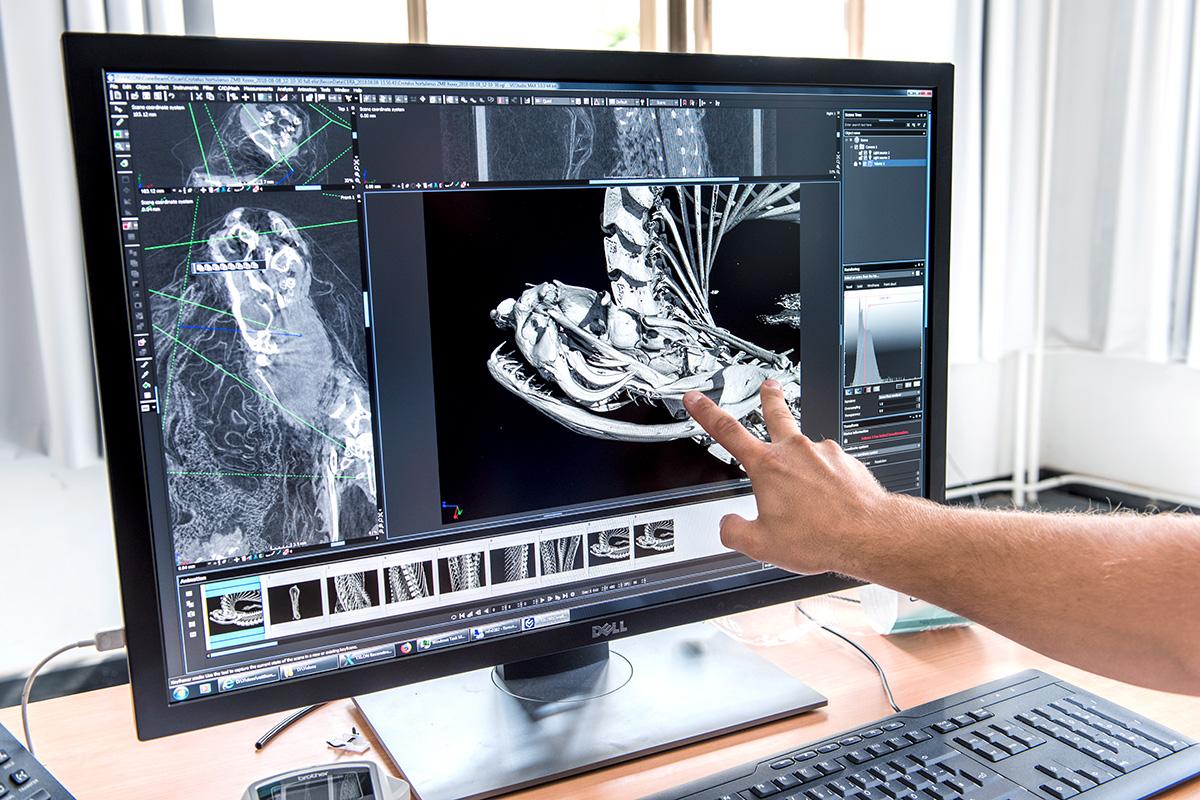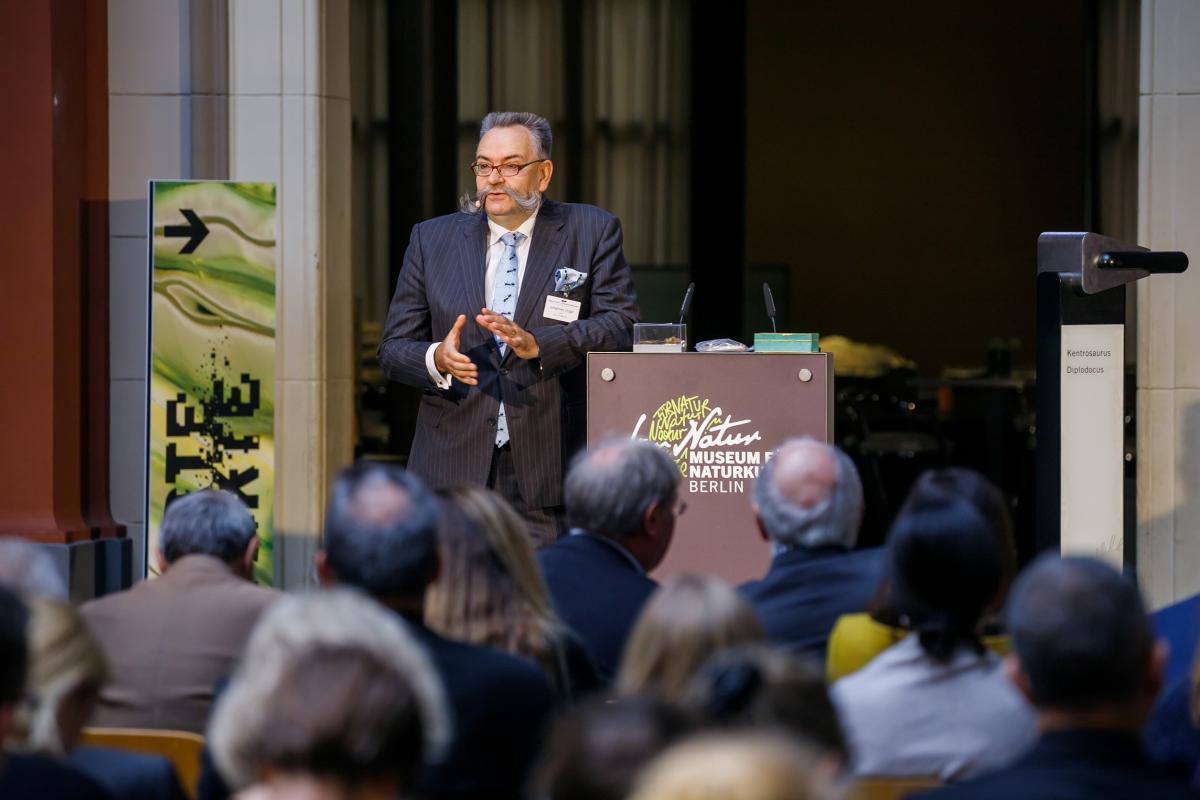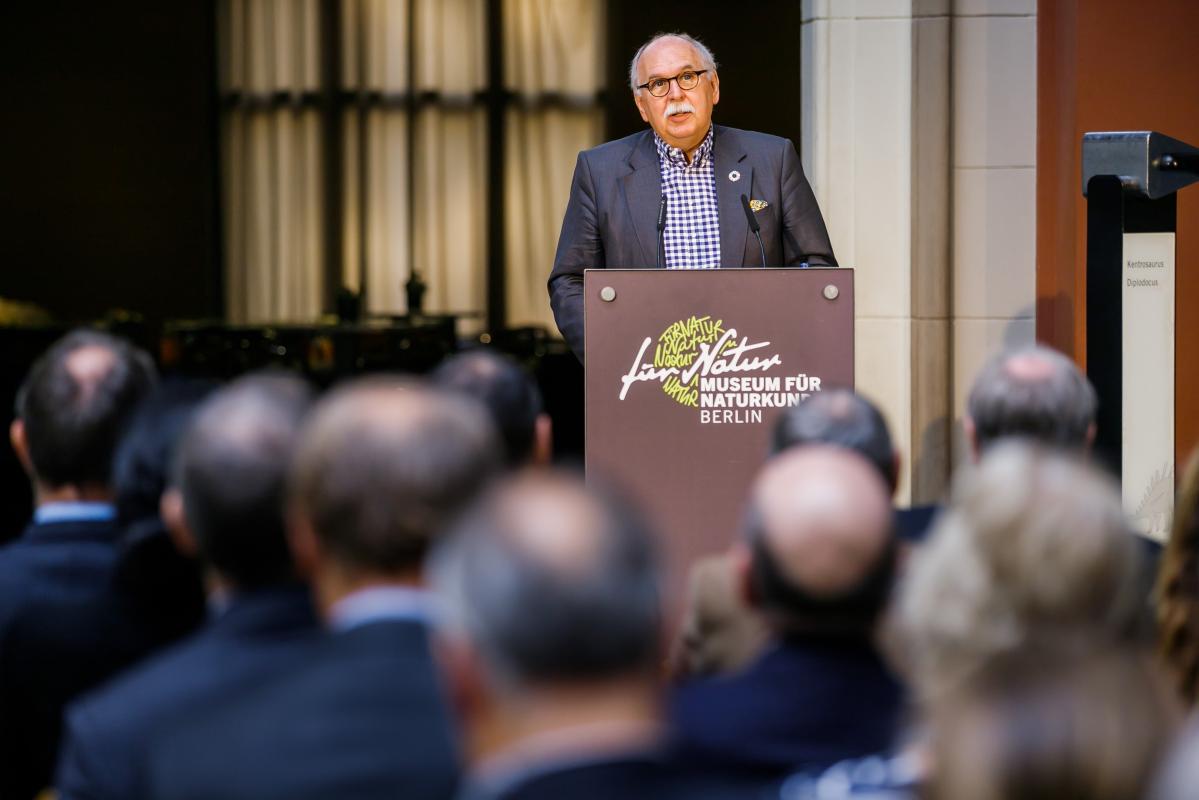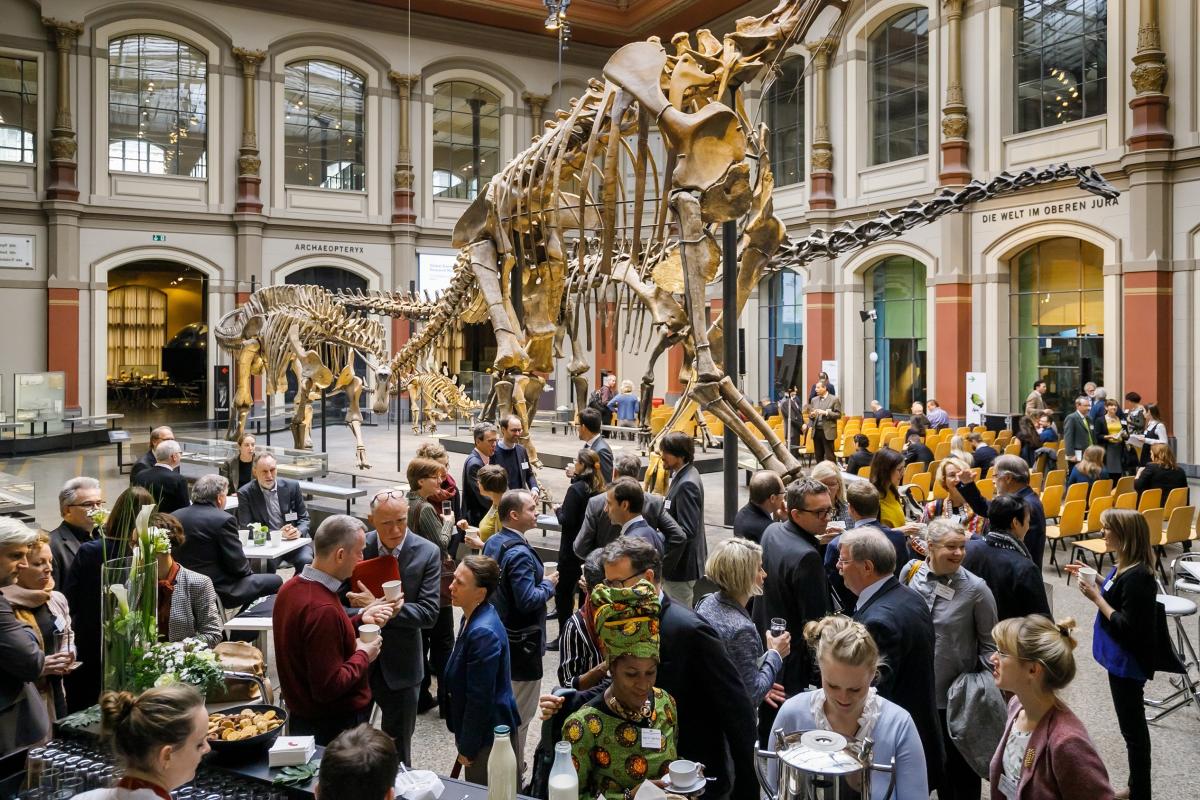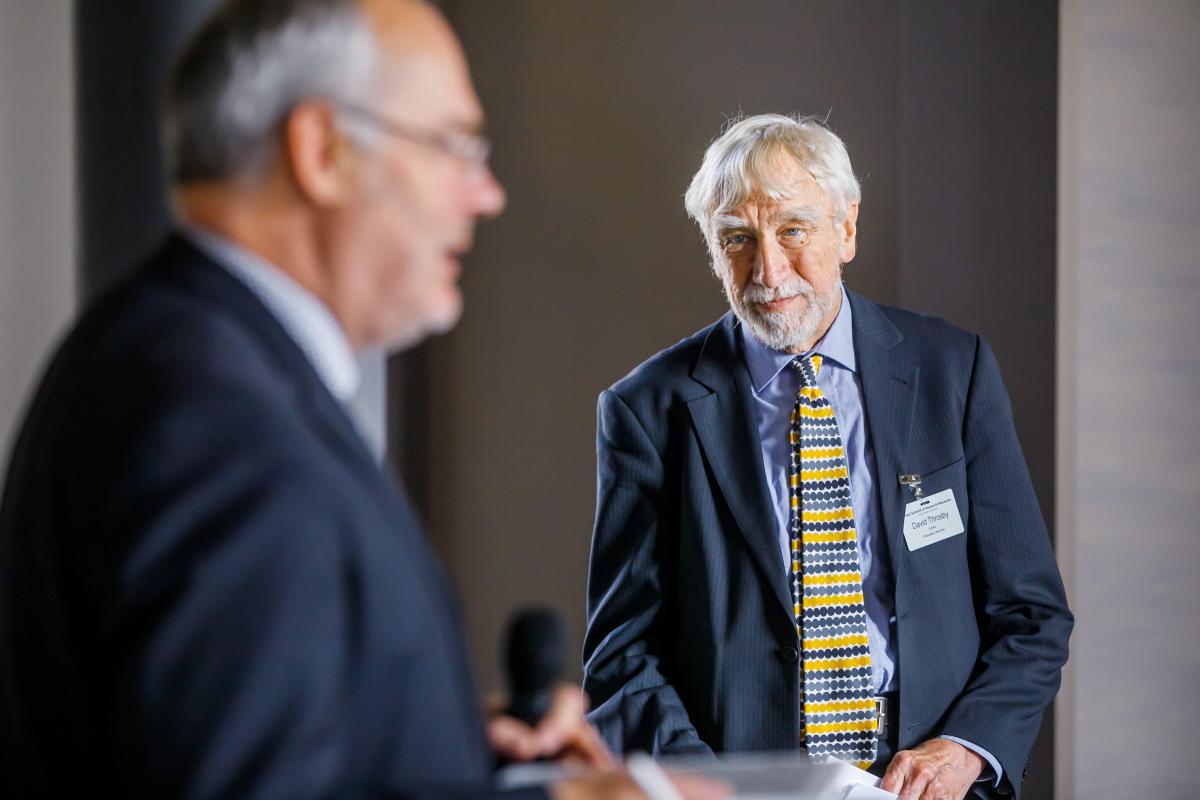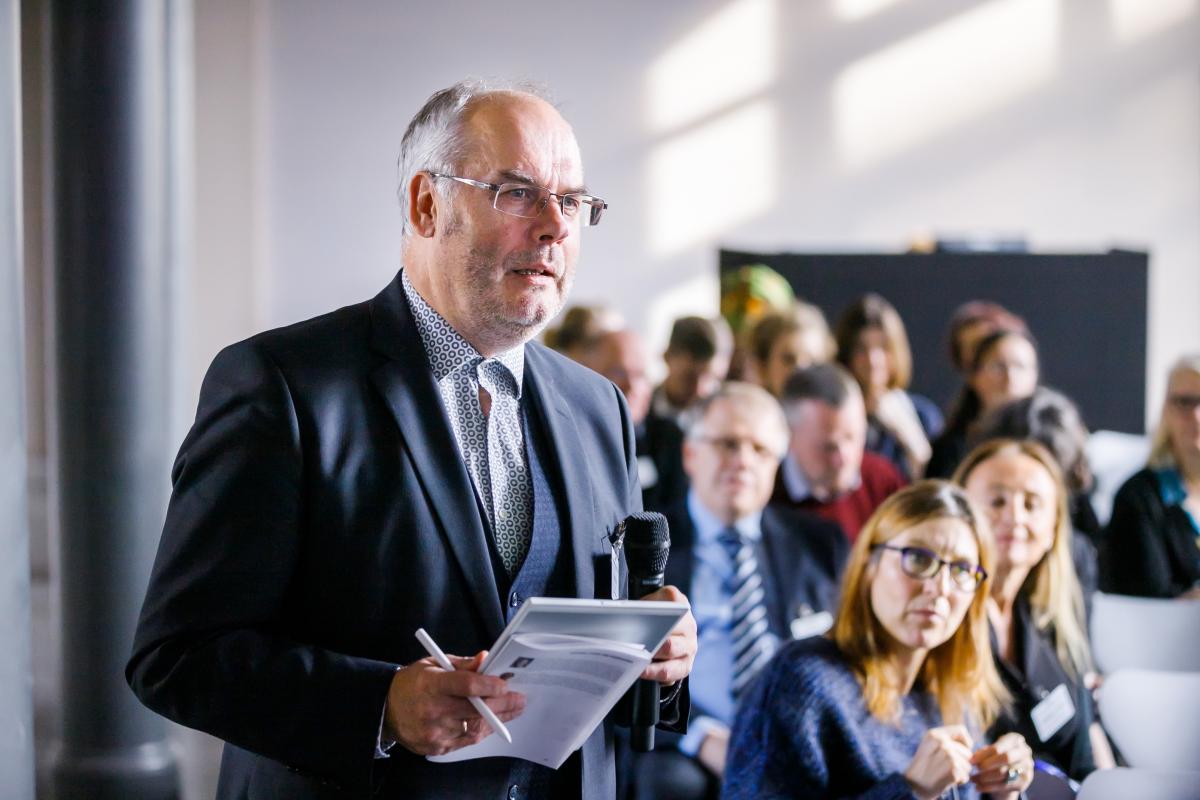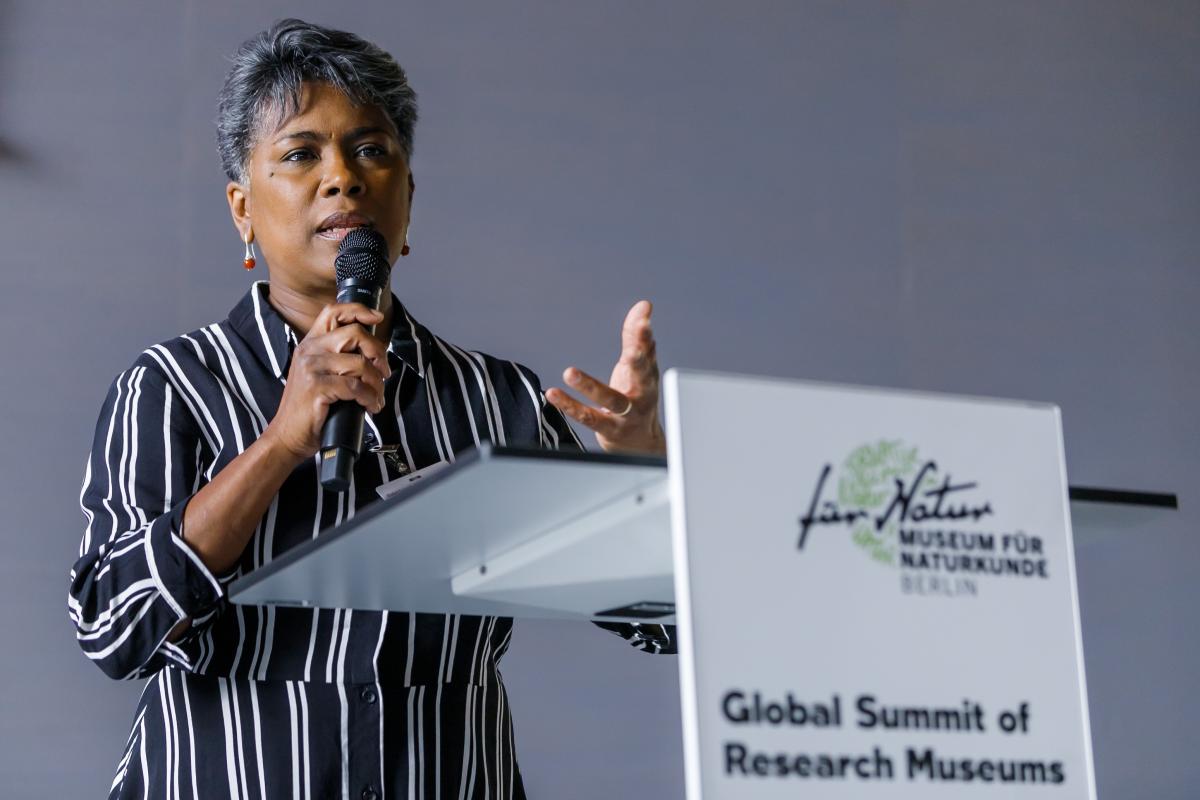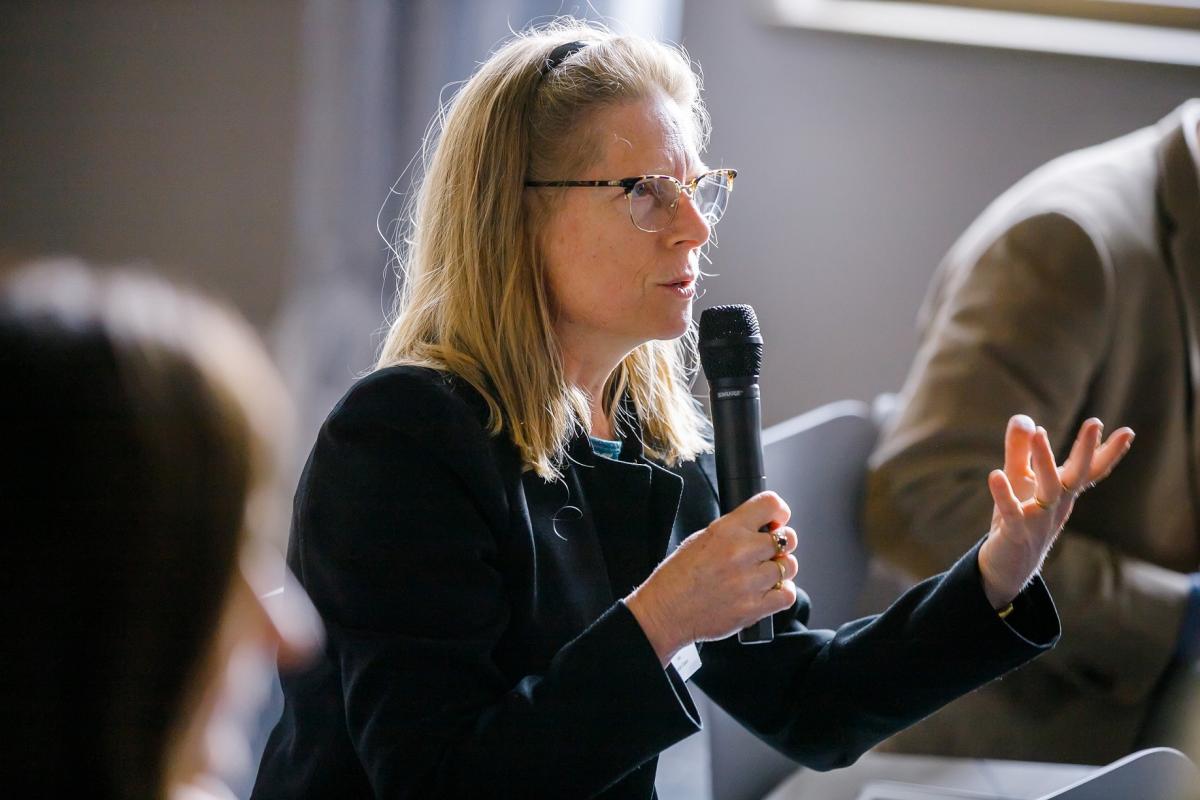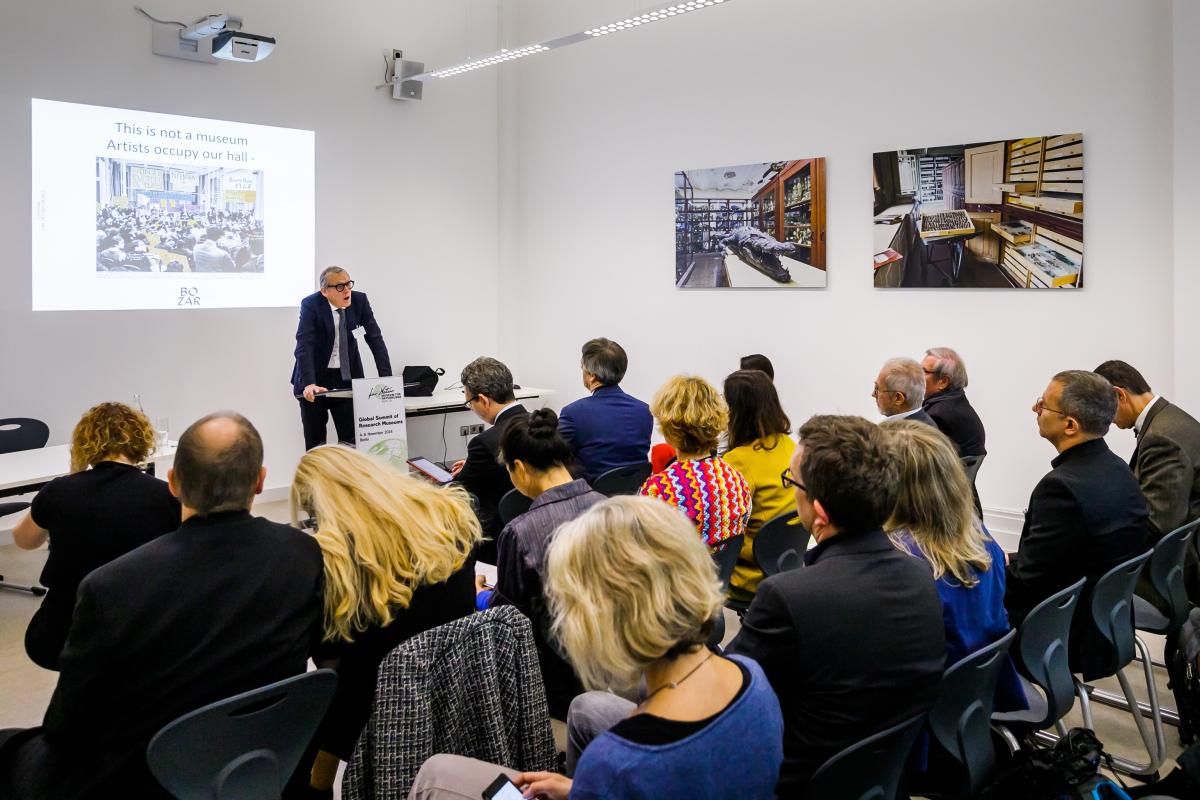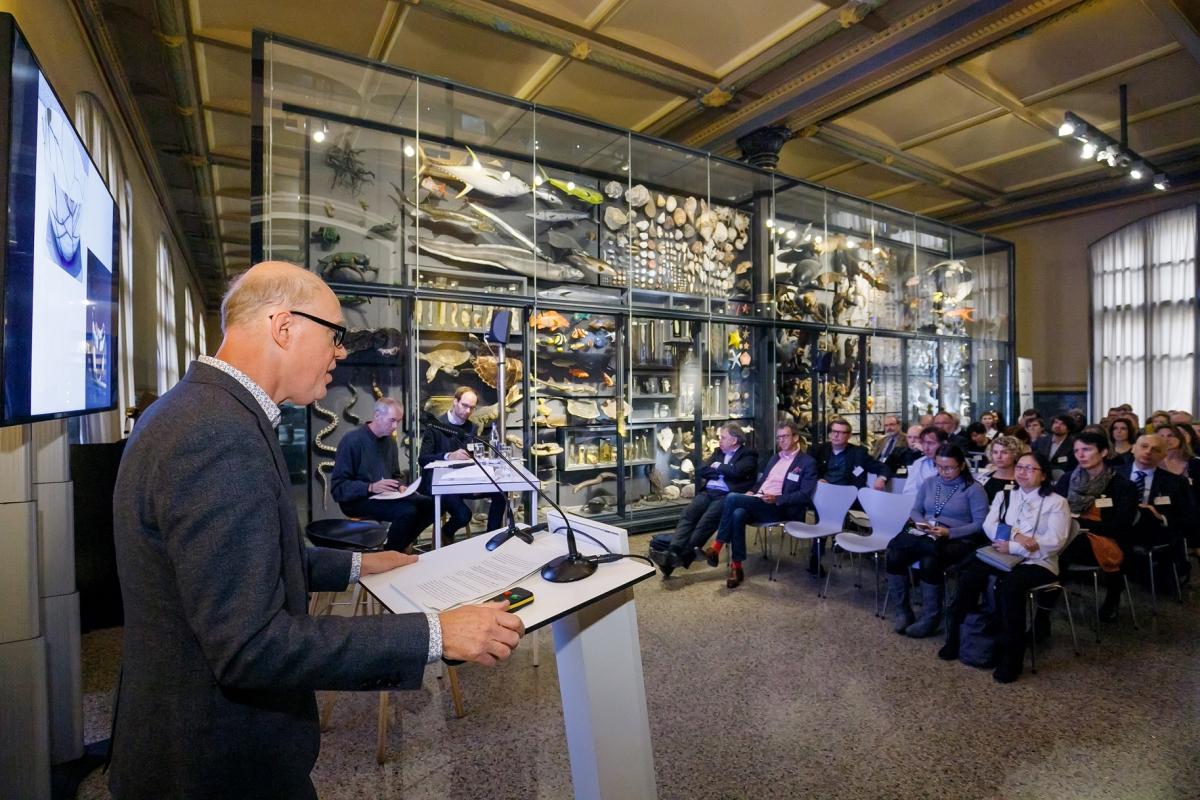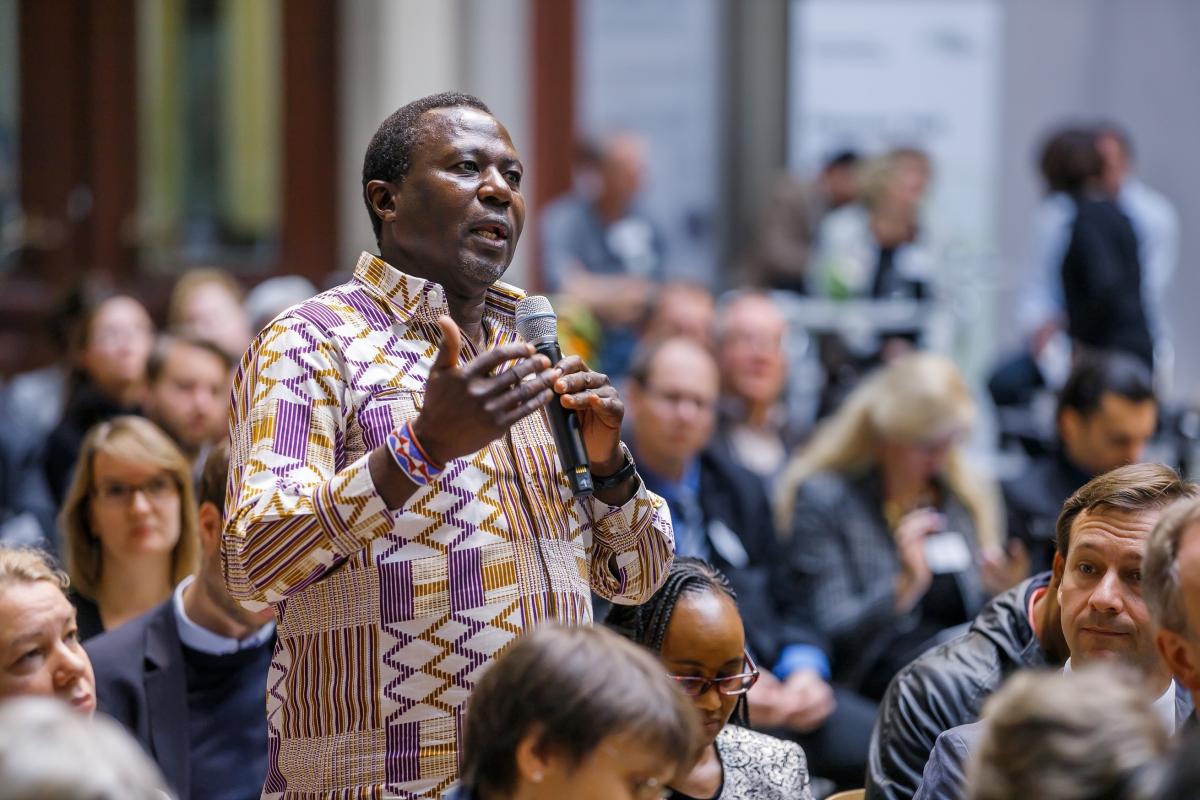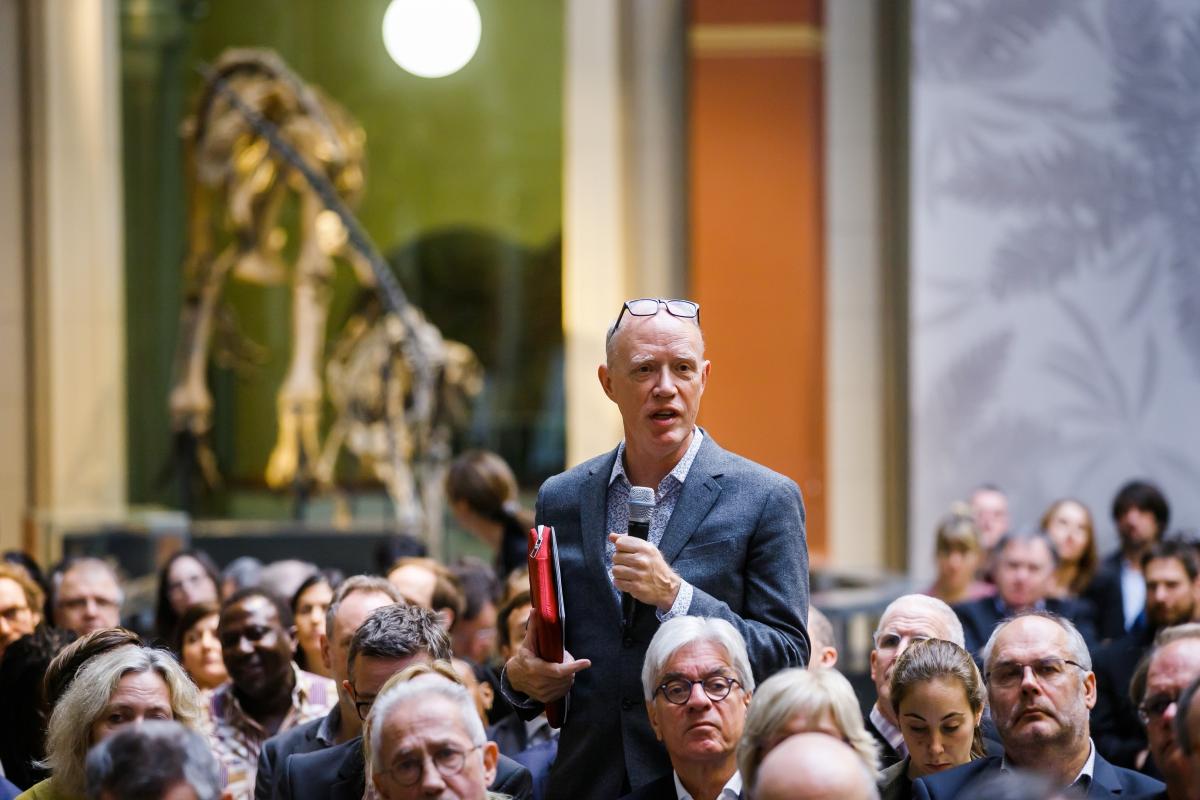How to digitise millions of collection items and make them publicly accessible? How to strengthen research in museums? How to best preserve collections, while also making them enjoyable for visitors? With their shared Action Plan, all eight research museums of the Leibniz Association have been strengthening their special role as interface between science and society since 2018. Information about the current Action Plan II (2020/21) can be found here.
The triad of building collections, conducting research and disseminating knowledge puts research museums in an ideal position to contribute state-of-the-art knowledge on current topics and to underline their relevance. The eight research museums within the Leibniz association have developed their special action plan to highlight their unique position at the interface between science and society. Alongside specific projects in individual museums, there are common formats that focus on science communication, knowledge transfer research and the international exchange of knowledge. The action plan of the Leibniz research museums is supported by the German Ministry for Education and Research and the Federal states that are home to the museums in question. Look here for further information.
The four Pillars of the Action Plan
Places for dialogue
Stakeholders from science, politics and the public sphere come together in each of the eight Leibniz research museums and begin a dialogue. These conversations are focused on topics such as the management of our natural and cultural heritage, climate change, the loss of biodiversity, energy transition or structural change.
Special exhibition ARTEFACTS
How do we want to treat our planet in the future? This question lies at the heart of a unique collaboration between the Museum für Naturkunde Berlin, the Joint Research Centre of the European Commission, and American photographer J Henry Fair. Their special exhibition ARTEFACTS steers clear of 'alternative facts' and 'fake news' with a discussion of environmental issues that is based on solid science. ARTEFACTS bridges ART and FACT.
Leibniz network knowledge transfer in museums – facilitation – dialogue
Within this network, the eight Leibniz research museums intensify their collaboration in various fields, on the basis of their research. What practical experiences in knowledge transfer, education and facilitation can be passed on to other research museums? How can new standards and innovative formats be developed to convey knowledge and disseminate research results? Several workshops are held on topics such as virtual, mixed and augmented reality.
From 18th until 19th of December 2019 an international conference on "Interdisciplinary Research on Museums as Informal Learning Spaces - New Ways and Concepts" take place as part of the Action Plan. Researchers from all over the world will discuss questions such as: Which skills do visitors bring to the museum? Why do they decide to go to a museum in the first place? And who does not visit museums? Finally, all these questions aim to develop the museum into a location where people are invited to participate in enhancing our knowledge about the world.
Preservation for the future
Within the context of the European Cultural Heritage Year 2018, expert exchange within and between research museums has been expanded and intensified. After all, research results are a team effort by specialists in restoration, scientists and archaeologists. To give an example – how can skins be preserved for research by future generations? How can preservation research be extended? What can national and international players achieve through strategic collaboration? Together, we have developed theme weeks, small exhibitions, an interactive computer game and a film series. More on the subject can be found in our brochure Bewahren für die Zukunft.
Cultural heritage under threat! Mini exhibition on the decomposition of skins
Natural history collections house millions of specimens, including many skins of mammals, which are research subjects as well as cultural heritage. The skins have been collected from all over the world during the past 250 years and they are unique witnesses of past and contemporary biodiversity. To look after and permanently preserve such collections is one of the basic responsibilities of a museum. The threat to the preservation of skins comes from chemical degradation processes, insect infestation and inadequate storage.
Selected specimens from the collection of the Museum für Naturkunde are shown alongside an interactive table developed by the Leibniz research museums with examples to illustrate the degradation processes. With the computer game "Hüter des Kulturerbes" (keepers of our cultural heritage), visitors can playfully engage in the virtual protection of some cultural heritage items.
Visualising research at the museum
Film series Cultural Heritage #7. How did Giraffatitan wag its tail?
Paleontologists explain non-invasive methods for the reconstruction of dinosaur musculature
Global Summit of Research Museums 2018
The first global interdisciplinary conference of research museums took place in Berlin from the 4th to the 6th of November 2018. The aim was to intensify the dialogue between science, cultural institutions and society in order to find innovative solutions to the challenges of the modern world, using state-of-the art science and developing international digital infrastructure. Participants decided to create a global knowledge and collection network of research museums. Read more about the summit here.
You can also read the detailed report on the first Global Summit of Research Museums here.
Learn more: Global Summit of Research Museums II (2022)
